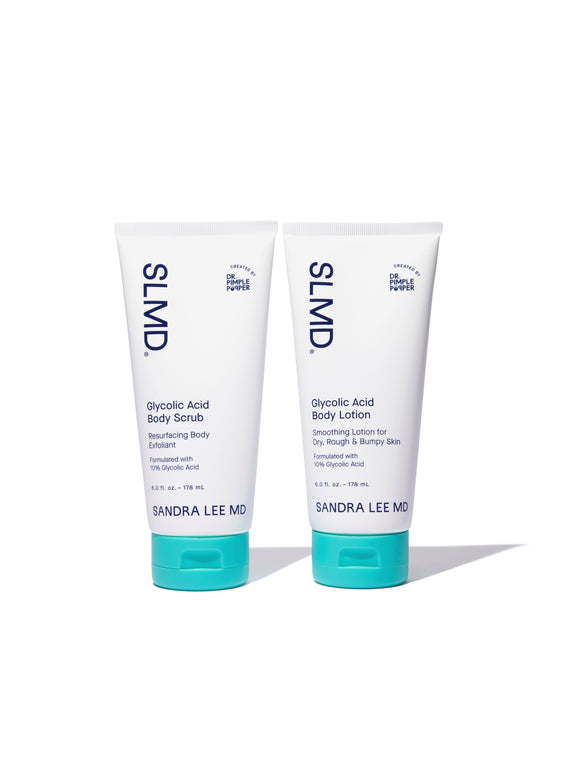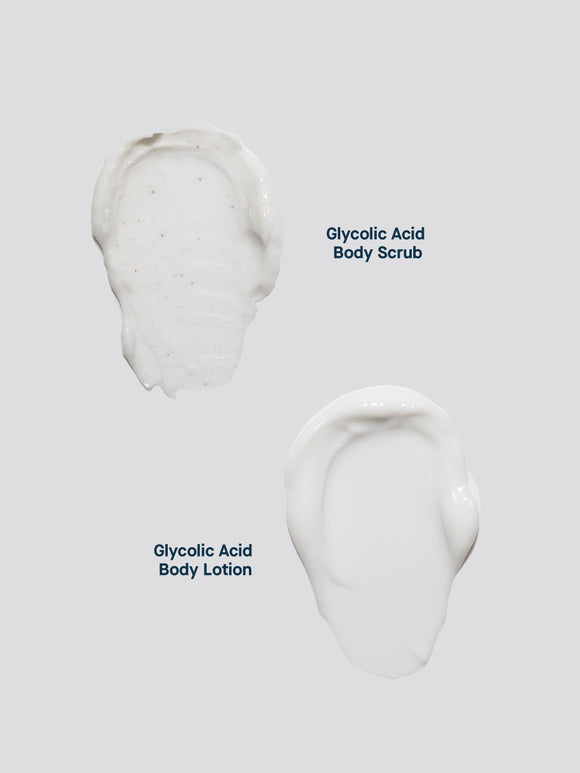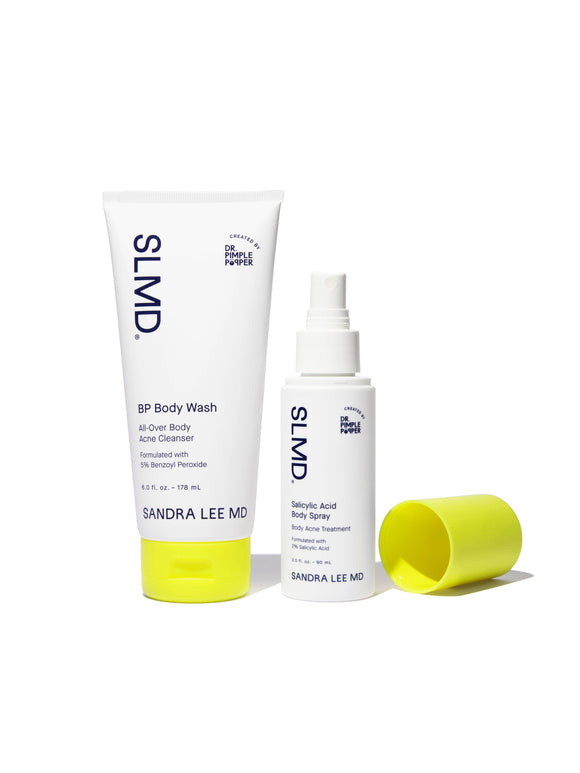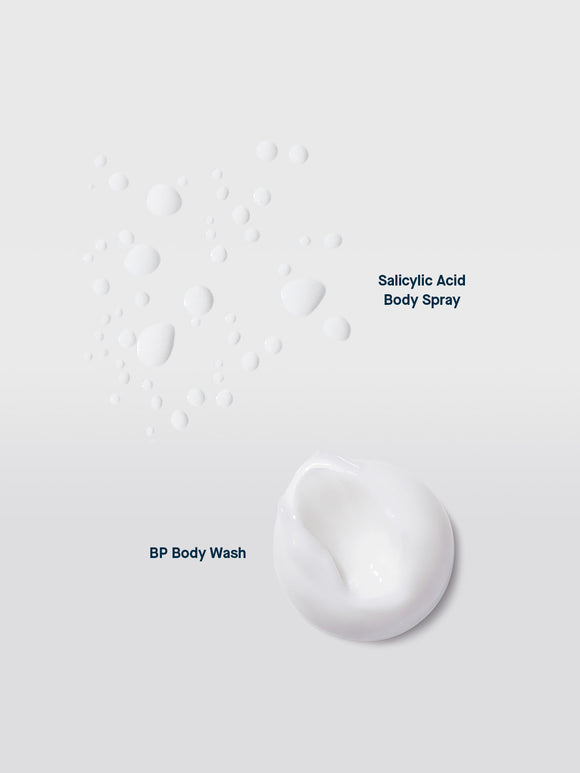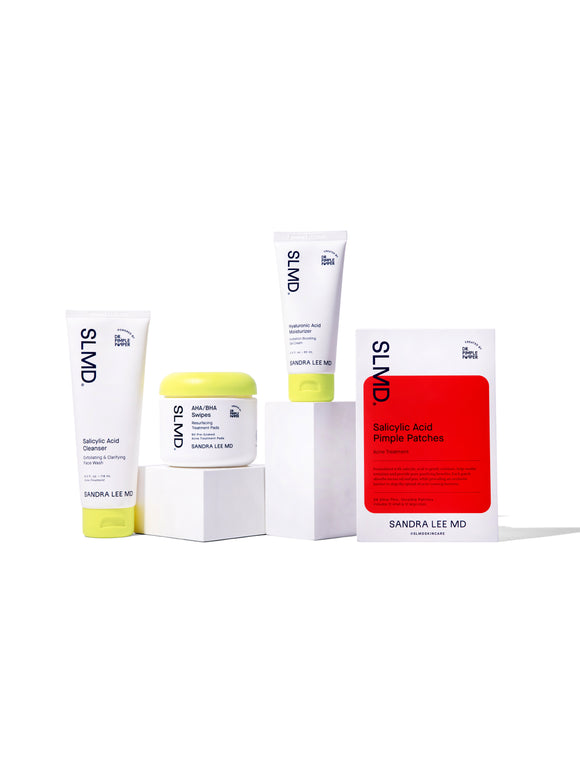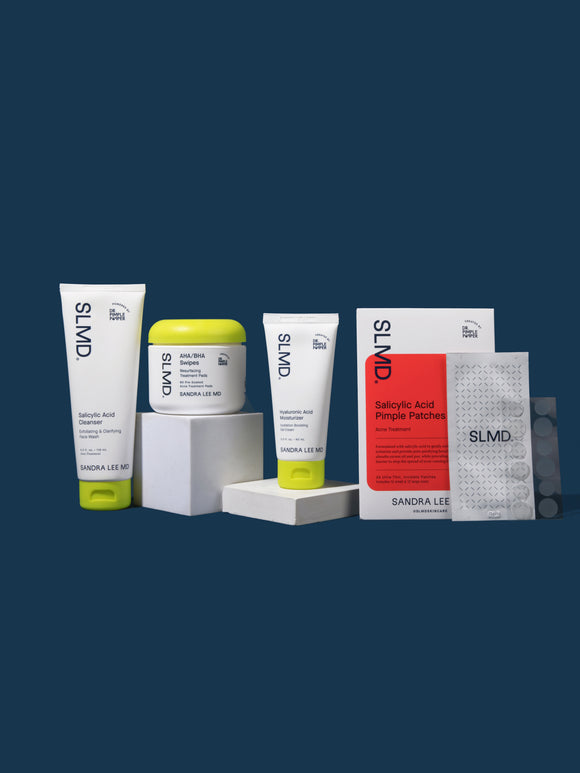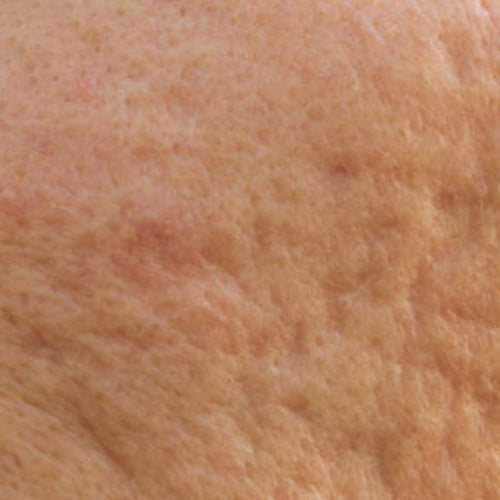
What Dr. Pimple Popper Wants You to Know About Skin and Mental Health
Learn how skin conditions can affect emotional well-being — and what to do about it.
Published:
3 minute read
Most of us understand that chronic skin conditions can take a toll on confidence — but what’s less talked about is just how closely skin health and mental health are linked. For board-certified dermatologist and SLMD Skincare founder Sandra Lee, MD (aka Dr. Pimple Popper), the connection is clear — because she sees it in her patients every day.
We sat down with Dr. Lee to get her perspective on how skin concerns impact emotional well-being — and what she recommends to manage both with compassion and consistency.
How does skin health affect mental health?
Dr. Lee: "In my practice, skin and self-esteem go hand in hand. Patients often come to me thinking they’re just treating acne or rosacea — but I quickly see that their concerns go beyond the skin — affecting how they feel about themselves day to day.
Skin issues may not be life-threatening, but they can absolutely affect quality of life. When you don’t feel comfortable in your own skin, it impacts how you show up — at work, with friends, even with family. That emotional burden is very real."
What do studies say about skin conditions and mental health?
Dr. Lee: "There’s more research emerging now that confirms what many of us in dermatology already see — that chronic skin issues like acne, eczema, or psoriasis can trigger depression, anxiety, and social isolation in some people.
One study I came across suggested the mental health impact of moderate acne can be similar to living with a chronic illness. That’s powerful — and it reinforces the importance of skin care as part of overall well-being.
There’s still a lot we don’t know, and I hope to see more studies focused on this overlap. The more we talk about it, the more we can help people feel supported and empowered."
How does social media influence self-esteem and skin confidence?
Dr. Lee: "Social media has helped bring more visibility to skin conditions — which is great — but it’s also created a lot of unrealistic expectations.
I’ve always been enamored with dermatology — the skin isn’t just our largest organ, it’s the most fascinating and incredible thing. That passion is what led me to start educating on social media in the first place. I’ve never seen skin conditions as something to be ashamed of — but I understand how much they can affect people’s lives.
That’s why I encourage people to find uplifting online spaces. When you realize others are going through the same thing, it can make all the difference."
Dr. Lee's Picks for Skin Confidence
What advice do you have for managing skin conditions with confidence?
Dr. Lee: "First and foremost: you’re not alone. Conditions like acne, KP, eczema — these are shared by millions of people. Your skin does not have to be 'perfect' to be healthy or beautiful.
Second, take control where you can. A consistent skincare routine with the right ingredients can make a huge difference — not just in how your skin looks, but how you feel. When patients start seeing improvement, I see their confidence come back, too.
You don’t have to wait for a prescription. There are great over-the-counter options out there (like from my skincare line, SLMD) to help you manage your skin at home."
What’s your role in promoting skin acceptance and mental well-being?
Dr. Lee: "I try to use my platform to educate — and to encourage people to feel more comfortable in their own skin. My goal is to normalize what real skin looks like, and remind people that they’re worthy of care — no matter what condition they’re managing.
Taking care of your skin is part of taking care of your whole self. And it starts with kindness — especially the kind you give yourself."
Skin + Mental Health: FAQs
Q: Why is consistent skincare important for mental wellness?
A: A regular skincare routine can help you feel more in control — and even small improvements may boost emotional well-being and confidence.
Q: What are some ways to protect my self-esteem when dealing with a skin condition?
A: Focus on gentle, consistent care. Avoid comparison on social media, and surround yourself with positive influences — both online and off.
Q: Do I need to see a dermatologist to manage my skin and mental health?
A: Seeing a dermatologist can help, but even over-the-counter routines — like those from SLMD — can make a big difference. If mental health symptoms persist, talk to a licensed therapist or doctor.
Q: What’s the difference between normal frustration and something more serious?
A: If your skin is affecting your daily life, relationships, or self-worth, it’s important to seek mental health support in addition to skincare guidance.





